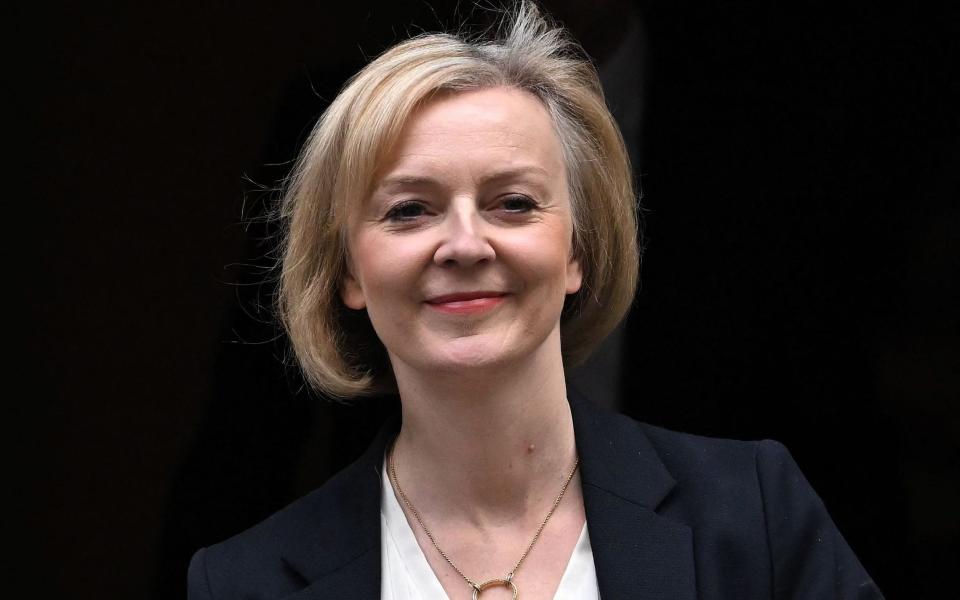
When bond markets turned dramatically against the UK in the wake of last fall’s disastrous mini-budget, it sparked lengthy lectures on the mad excesses of ‘Trussonomics’.
Savage and risky “unfunded tax cuts” were to blame. Lower rates for the wealthy would increase inequality. The headlong rush for growth, which led to a disregard for fiscal prudence, amounted to a full-scale assault on the anti-growth coalition.
But wait.
This week we learned that a boring risk premium is just as worrisome as the “dumb risk premium” (as one City analyst dubbed last September’s market turmoil).
With borrowing costs hitting a G7 high and the UK’s solvency under threat again, one point is certainly clear.
Britain’s reckoning with the bond markets has been a long time coming – and whoever is in charge can no longer be fooled into believing that ‘free’ money can magically come out of nowhere forever.
Last week was just as brutal for the UK gilt market as last September’s drama.
Following another round of dismal inflation figures, which suggested rising prices were as deeply entrenched in the UK economy as they were in the 1970s, investors took decisive action to sell UK government debt.
Yields on 10-year bonds climbed to 4.31%, surpassing even Italy and reaching the highest levels since last fall.
As market expectations for the interest rate set by the Bank of England have risen, mortgage rates have also risen. It surely won’t be long before we see cracks in the financial system and eventually, with tiresome familiarity, an emergency intervention by the Bank.
It seems that last year’s sale was the start of something much bigger – and much more disturbing.
Bond markets no longer want to finance the profligacy of the British state and our determination to live well beyond our means, at least not without high costs in return.
Britain is increasingly becoming a poor country acting like a rich country.
Rishi Sunak convinced the public – and perhaps himself – that the government should simply impose unpopular tax hikes, make “tough choices” on spending and let the “adults” in the Treasury set the policy.
Once this objective was achieved, logic followed, this period of economic turbulence would finally come to an end. But it has always been a fiction.
UK finances are unsustainable. The most recent budget left total departmental spending virtually unchanged, with additional funds for defense and childcare, but no significant cuts until the next general election.
As the latest round of borrowing numbers revealed, we are still a long way from balancing the books.
After a big jump in 2020, public debt as a proportion of GDP remains close to 100%. Since the economy seems incapable of growing, this will only increase, even if we do not commit to borrowing more.
Our central bank has lost control of inflation, as evidenced by the rise, not the fall, in core inflation in April.
Even the headline rate remains stubbornly high, at 8.7%, with extremely sticky food prices.
Chancellor Jeremy Hunt said earlier on Friday that he would be comfortable with a recession if it brought inflation down. This is the terrible choice the government has left to itself: persistent inflation or economic contraction.
Unless we end our dependence on low growth and debt, the situation will only get worse.
The Treasury’s forecast that it will raise £17billion through higher corporate tax rates is likely to prove as inaccurate as many of its other forecasts.
It will be enough for a handful of private companies to relocate abroad for the sums to be well below what is expected.
Our marginal income tax rates, meanwhile, now reach a sky-high 70% for many couples with both children and student loans, once declining benefits and child allowances are taken into account.
Perhaps worst of all, an impending Labor government would spend far more, seemingly with no idea how it is going to pay for it all.
Labor has big plans for a green energy giant, for an interventionist industrial policy, not to mention pay rises for some of its public sector union supporters.
Yet aside from his plans to tax wealthy foreigners and impose VAT on tuition fees, it’s hard to discern how he plans to pay them. In this context, why would anyone want to own gilts with a negative real yield of minus 4%?
It could be much worse than the crisis we faced last September. For all its flaws in communication and execution, at least the Truss government was borrowing money to finance growth and reform.
The Sunak administration is borrowing to pay for stagnation, and Labor will borrow to pay for massive expansion of the state.
The only real way out of this mess is to revive economic growth.
It is not impossible. We could remove planning restrictions to start building houses. We could finally deviate from European regulations. And we could cut corporate and entrepreneurial taxes to boost investment, with personal tax cuts to follow on receipts.
Instead, we chose to continue living in a magical money tree fantasy land disguised as tax liability.
Bond markets seem to have understood that the UK is stuck with zero growth, with sustained inflation, and has lost the will to reform. As long as this remains the case, they will continue to demand a higher and higher price for lending us money.
The liquidation of the gilts last September was only the beginning: the British debt crisis will worsen in the future.
Broaden your horizons with award-winning British journalism. Try The Telegraph free for 1 month, then get a year for just $9 with our exclusive US offer.
